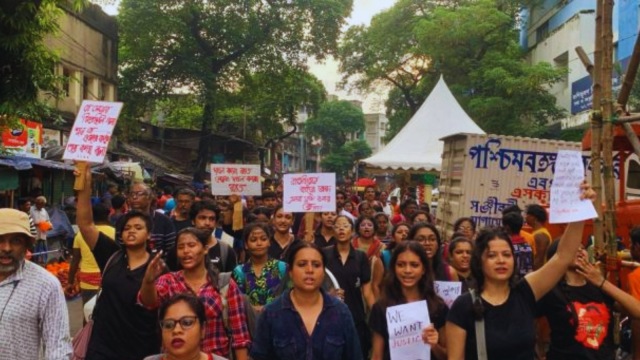Installation of CCTV cameras in blind spots, controlling access in large hospitals, and regular checks on all hired security and service staff – these were some of the immediate short-term measures for healthcare workers’ safety that were discussed at a meeting held by Union Home Secretary Govind Mohan and Health Secretary Apurva Chandra with the states on Wednesday.
The meeting comes a day after the National Task Force, which was formed under the directions of the Supreme Court after an 11-day nationwide agitation by doctors to protest the rape and murder of a trainee doctor at RG Kar Medical College and Hospital in Kolkata, met on Tuesday.

The task force, of which Mohan and Chandra are a part, will take suggestions from stakeholders and present a report on ensuring the safety of healthcare workers.
In Wednesday’s meeting, Chandra emphasised setting up control rooms in large district hospitals and medical colleges with a duty roster to regularly monitor the CCTV cameras, store the data, and respond to emergency situations. He said that hospitals should have an institutionalised security committee that includes resident doctors.
He added that security drills should be carried out just like fire drills. Chandra also urged that hired security personnel should be trained and capacity upgraded, adding that in many health facilities, there was a lack of security personnel discharging their duty due to poor capacities. He further said that there should be routine security patrolling.
On the patient care side of things, Chandra said that hospitals need patient facilitators and trolleymen to ensure that fewer relatives of patients come into the treating areas, reducing the stress of healthcare workers and security personnel. He also added that healthcare workers, especially those posted in the emergency or casualty departments, should be trained in bereavement protocol.
Meanwhile, Mohan focused on four key points — installing CCTV cameras in blind spots, integrating services of emergency helpline 112 for doctors, access control in large hospitals to ensure that only authorised personnel, patients, and their relatives enter different areas in the hospitals, and sharing of the provisions of the new Bharatiya Nyaya Sanhita (BNS).
Story continues below this ad
The states spoke about the short-term measures that they have already put in place, including the proper implementation of existing laws for the protection of healthcare workers. Earlier, the Centre had not supported the protesting doctors’ demand for a central act, pointing out that similar state laws already existed.
The states also said that they have taken measures such as displaying provisions of the BNS, having police stations or chowkis in large medical colleges or district hospitals with enhanced patrolling at night, reviewing CCTV footage etc.
The states informed that police verification of contractual or outsourced employees working in government hospitals is being done. The states also said that security audits of district hospitals and medical colleges will be conducted by district magistrates, superintendents of police, and deans or directors of the institutes.
Hospitals will also have provisions for chief security officers, create committees to look into sexual complaints or harassment issues, review lighting in different parts of the hospitals, conduct regular drills for security threats, and audit spaces to ensure that unutilised areas are not being misused by “undesirable elements”.
Story continues below this ad
Importantly, some of the states said they have security escorts for women doctors from the hostel to the duty area during night duty.









